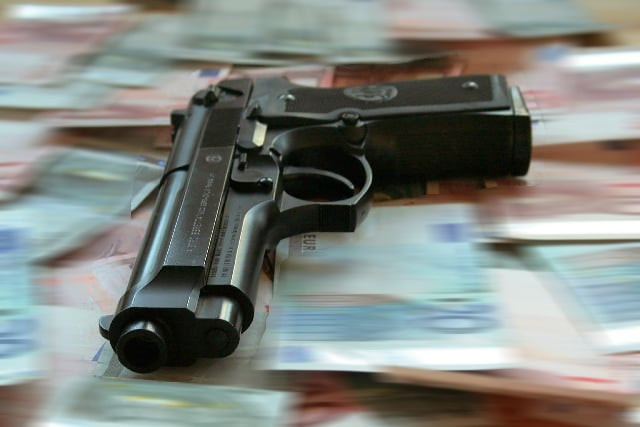Extortion is a numbers game, as police discover with first arrests
As pressure builds on government, the new anti-extortion cell gets to work amid trying conditions.

Extortion is a numbers game, as police discover with first arrests
Two men arrested for extortion by a new cell are behind eight of the 15 complaints. This may be too early to predict a trend but for now the police are happy they have something to show.
“We usually wouldn’t make such a big deal out of just two arrests” said deputy police chief AIG Akhtar Hussain Gorchani, almost apologetically, “but we have to show the traders that we are committed and we want them to trust us.”
What the police wants, it may not get, at least for now. On Friday, the new cell had to hold a press conference to go public on the arrests as the Muttahida Qaumi Movement put pressure on the government for not acting.
“These are the guys who go to the traders and extort money from them but we are confident that we can go up the chain as well,” said DSP Wasif Qureshi, who heads the newly formed Anti-Extortion Cell (AEC). It takes anonymous calls. In addition to the AEC, the Citizens-Police Liaison Committee (CPLC) has received 20 complaints in March (39 in January and 21 in February). “We agree with statements being made that extortion is on the rise and if you look at the numbers in March so far, it is particularly alarming,” said CPLC chief Ahmed Chinoy. Most reports have come from districts east and south.
The criminals use the traditional parchee or paper slip dropped off at the business, but have also started sending text messages to the business owner. “It has become very violent. They are simply killing people who don’t pay up, we have had two deaths because of this recently,” said Mian Abrar Ahmad of the Karachi Chamber of Commerce.
Others send a message to the business by opening fire on the shutters of a store while it is closed or lob a hand grenade at it. Independent criminals with or without links to political parties are at work in this racket but so are criminals who use the names of well known gang leaders and political parties to get the message across.
“Usually someone will call up a trader and start telling him how many kids he has, where they go to school, where their assets are in order to scare them and then they will tell them to have a certain amount of money available by a certain date,” says DSP Wasif Qureshi.
There are varying estimates of how much money is extorted from traders in Karachi on an annual basis but Chinoy says they are at best “wild guesses”.
It doesn’t help that the police do not have legal access to phone records and the way SIM cards are issued is still a leaky process. Much of this would have to be ironed out. In the meantime, DSP Qureshi is still in the process of getting the cell up to full strength. It has about 10 dedicated officers who will need cars and mobile phones. “Right now we are just using the general strength of the SIU for the cell and we don’t work alone,” he said. “Other police stations, SPs and SHOs, all work with us and now that the cell has formed it doesn’t mean that the rest of them don’t have to do their part.” It would help though if more people came forward, as there is strength in numbers.
Published in The Express Tribune, March 17th, 2012.



















COMMENTS
Comments are moderated and generally will be posted if they are on-topic and not abusive.
For more information, please see our Comments FAQ